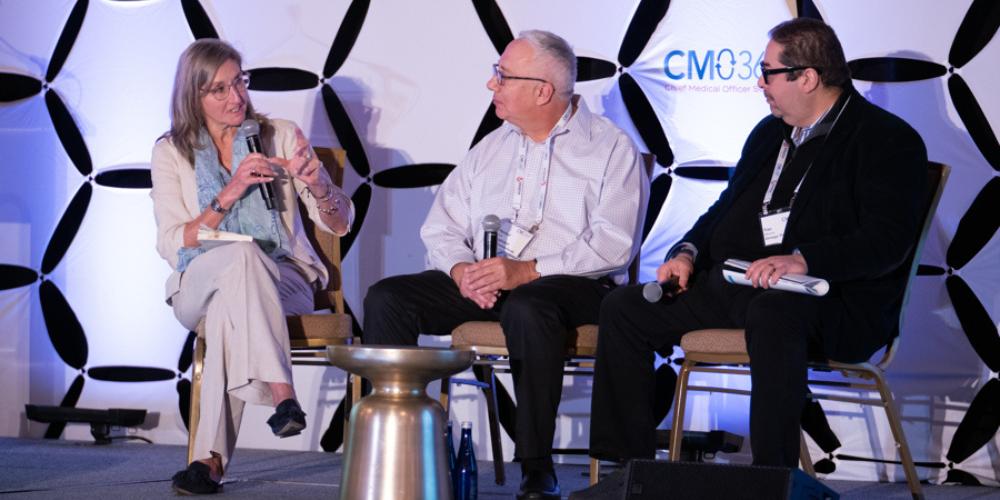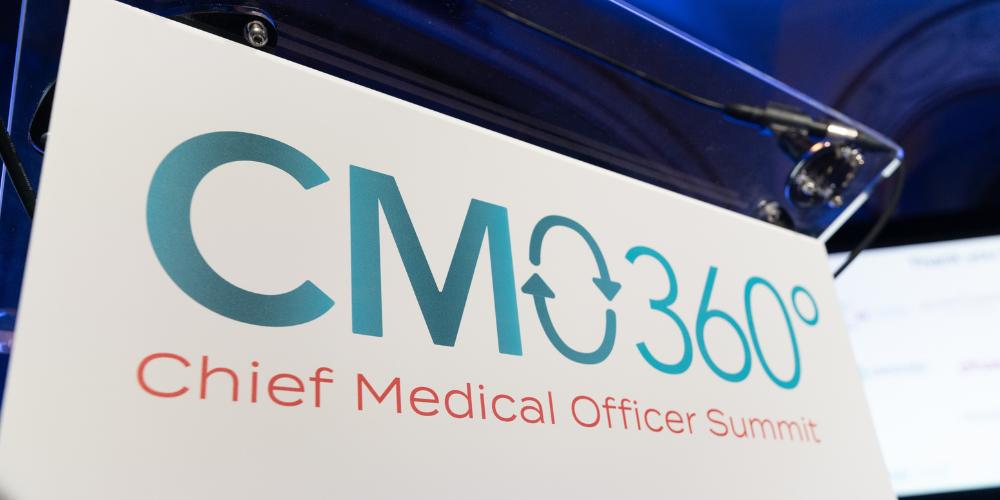A CEO’s Perspective on the Skills Needed to Succeed as a CMO with a Translational Company
As CEO of four biotech companies, Robert Connelly, CEO of Elicio Therapeutics has plenty of experience working with CMOs and discusses what he looks for in a CMO and how CMOs can prepare to lead emerging biotech companies.

How do you evaluate potential CMOs?
The first thing I look for is our personal compatibility. The CMO really needs to be my partner. In early-stage companies with novel therapeutic platforms, CMOs need to understand the foundational science and work with all the departments in the company. While they may not have been involved firsthand in certain departments when they worked in large pharma companies, CMOs need to be deeply engaged preclinically at a smaller biotech, helping preclinical functions translate the foundational science into lead programs that can move to the clinic and validate the platform.
I also look for stage compatibility. You want someone who started their career in large pharma but who made a successful leap to a small entrepreneurial company, helped build a therapeutic platform, and has taken the lead program into the clinic because that path is a very different experience. I prefer a CMO who can really contribute to every part of the process including the very early research stage, preclinical work, manufacturing and CMC strategy, regulatory and clinical strategy.
For a first-time CMO without this past experience, what skills do you look for?
You need to be comfortable without all the support you generally get at a large company. There’s a big difference working for large pharma, a 300-person biotech and a 30-person preclinical biotech. You need to be comfortable contributing in all areas at the smaller companies, as opposed to being a specialist in whatever disease area you’re focused on. You need to be able to make scientific and CMC contributions and weigh in on candidate selection.
Another critical skill for CMOs is to have a track record of building strong relationships with clinical investigators. A lot of care and attention should be paid to clinical sites. When you do, the sites come back with ideas to improve your trial design and share trends they are seeing, giving you opportunities to preempt potential challenges. Those relationships are critical, and it takes a real willingness and an investment of time to build and maintain them.
“Something is wrong if the CMO is not a key part of the financing and business development discussions.”
How early should a company bring on a CMO?
If you are just getting started and you’re looking at 4-5 years until you get to the clinic, you may not want to bring someone on unless they can also manage R&D. I personally want a CMO who can lead R&D and clinical development, so I would bring them on earlier. But if they are only going to focus on the clinical stage, I would wait until I have preclinical proof of concept before bringing that person in.
How can CMOs support their CEOs and companies in the translational stage?
When you have a novel platform that can potentially be applied in different areas, the CMO helps the company prioritize and focus. At Elicio Therapeutics, we have a novel vaccine platform that targets lymph nodes to generate a powerful immune response. While we could apply it to infectious diseases or many different types of cancers, we can’t expect to have the funds to finance so many trials. The discipline behind the focus to pick one indication to prove your concept, as well as increase value and options, is driven by the CMO and CEO in concert.
“Focusing on validating the lead program and the premise of the technology prevents you from trying to do too much, which can impact valuation and financing options negatively.”
How do you think about prioritization?
Our lead cancer vaccine, ELI-002, focuses on mutant KRAS-driven cancers, which encompass 25% of all human solid tumors. We chose to focus on pancreatic cancer because there is a great unmet need. There is an opportunity for us to help patients that have limited options and quickly validate ELI-002 but also the premise of Elicio. Focusing on validating the lead program and the premise of the technology prevents you from trying to do too much, which can impact valuation and financing options negatively.
Even if the biotech financing environment suddenly totally recovered, this idea of focus and fundamentals should stay. Companies need to prune the portfolio down to something that moves the fastest to prove their technologies and help patients.
What is the role of the CMO in financing, partnerships and mergers?
When we have financing discussions, our CMO, Dr Chris Haqq, will talk a majority of the time, explaining the science behind the platform and the lead therapy. Investors want to understand the path to success and the path to valuation increase, so the CMO has to be able to articulate the premise of the company, the basic technology, why it is important, why it is differentiated from competing technologies and how you are going to move it ahead in the clinic. And the CMO needs to get that done in the short amount of time you’re given when meeting an investor.
Something is wrong if the CMO is not a key part of the financing and business development discussions. It indicates that they are not a partner with the CEO and executive team, and I don’t see how you can advance without that partnership.
“I don’t think anyone should make the leap from a large company into an entrepreneurial company without having talked in great detail with other CMOs who have done it.”
How would you advise a CMO to approach their CEO about increasing resources to increase the power of the clinical trial?
The biggest thing for me is to try to preempt any potential issues by having these discussions ahead of time and trying to identify potential risks and mitigation strategies. You want to address these issues before they become full-blown problems.
Enrollment is a good example. We started our ELI-002 (AMPLIFY-201) trial in the middle of COVID-19, which affected the availability of manufacturers and travel for patients. We made several amendments to our enrollment criteria to mitigate a setback in enrollment rates. These types of preemptive solutions enabled us to go public and to present ELI-002 Phase 1 study data at ASCO back in June.
What do you wish CMOs knew about leading an emerging biotech?
You have to be prepared for all of the highs and lows. You are going to feel them much more intensely because you are part of a small company that is reliant on continued success scientifically and financially, with a limited number of chances for that success. There isn’t time to get comfortable. Ultimately, this kind of work isn’t for everybody. You need to be ready to wear many hats and be flexible to make changes as you’re going.
I don’t think anyone should make the leap from a large company into an entrepreneurial company without having talked in great detail with other CMOs who have done it. You need to ask them what mistakes they’ve made, what surprised them, how they interact with their CEO and how to thrive in the role.
Anything else?
I can't stress enough the importance of not being siloed into just regulatory and clinical. If you are making the move into an early-stage or preclinical company, you need to be able to manage or at least understand all of the pieces of the puzzle.









